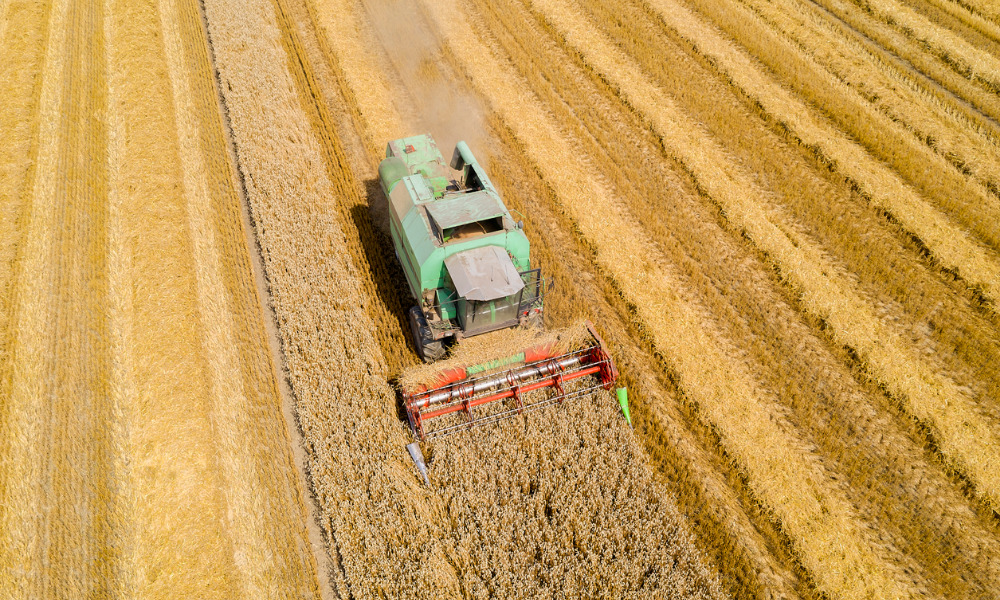Equity analyst weighs in on how prolonged Russia conflict could affect agricultural stocks

During the post-pandemic period, supply-chain concerns for everything from commodities to consumer goods have become the norm, and the situation in Ukraine has added to an already-strained global system. And while much concern and speculation has swirled around the energy sector, there’s another area that could be similarly shocked.
According to John Kratochwil, Equity Analyst for AGF Investments Inc, much of the market's attention has been drawn to rising energy prices as Russia, which produces roughly 10% of the world's oil, has been cut off from export markets. The crisis has resulted in increased cash flows and strong profits for Western oil and gas corporations.
However, as the conflict drags on, investors are increasingly evaluating the impact of another global supply constraint – this time in food – as well as potential prospects in agriculture-related commodities like fertilizer and crop-protection products (popularly known as pesticides).
Kratochwil noted that the two countries had been breadbaskets – significant exporters of wheat and other foodstuffs that supplied about 6% of the world's calories, according to the Agriculture Market Information System – until late February, when Russia's invasion of Ukraine forced the closure of major ports and turned Russia into an economic pariah. According to the UN Food and Agriculture Organization, Russia is the world's top wheat exporter, with Ukraine in fifth position.
Many farmers in Ukraine have joined the fight against Russia, and those who have stayed to work on their property are having difficulty finding workers. According to the United States Department of Agriculture's Foreign Agricultural Service, Ukraine is expected to harvest fewer than half of the 80 million tonnes of grain (wheat, corn, and barley) it produced in 2021.
The consequent shortages have a greater impact on some regions than others, particularly food-importing countries in South Asia, the Middle East, and Sub-Saharan Africa. The UN World Food Programme reports that Egypt is the world's largest importer of Ukrainian wheat; Lebanon and Pakistan are similarly reliant, with the latter receiving half of its grain from Ukraine.
What's the end effect of it all?
In comparison to January 2021, the World Bank Agricultural Price Index is up 41% in May 2022, while wheat prices are up 60%. The crisis in Ukraine, according to the World Bank's April 2022 Commodity Markets Outlook, has disrupted food trading patterns, production, and consumption in ways that will keep prices at historically high levels through the end of 2024.
Morgan Stanley estimates that Russia and Belarus exported around 40% of the world's potash, which is used in many fertilizers. Prior to the situation in Ukraine, Belarus' potash was already subject to sanctions, and Russia's is now as well.
On top of that, Russia and Ukraine together export 28% of fertilizers made from nitrogen and phosphorous. While fertilizer from Ukraine is not under sanctions, transportation routes have been disrupted and much of this material is not making it out of the country.
In May, spot prices for potash climbed more than 175% from the previous year, according to investment research platform YCharts. Bloomberg data shows ammonia, another key fertilizer component, remained nearly 90% higher despite some recent price moderation.
Even if the Ukrainian crisis ends, Western sanctions on Russia are unlikely to be lifted immediately. It will also take some time to re-establish transportation links from Ukraine. Given these odds, the world might expect higher prices in the medium to long term as food and fertilizer slowly return from Ukraine and Russia to world markets.
“In our view, then, fertilizer production and crop-protection companies may continue to benefit from elevated cash flows in the current environment,” Kratochwil said. “So might their investors.”



